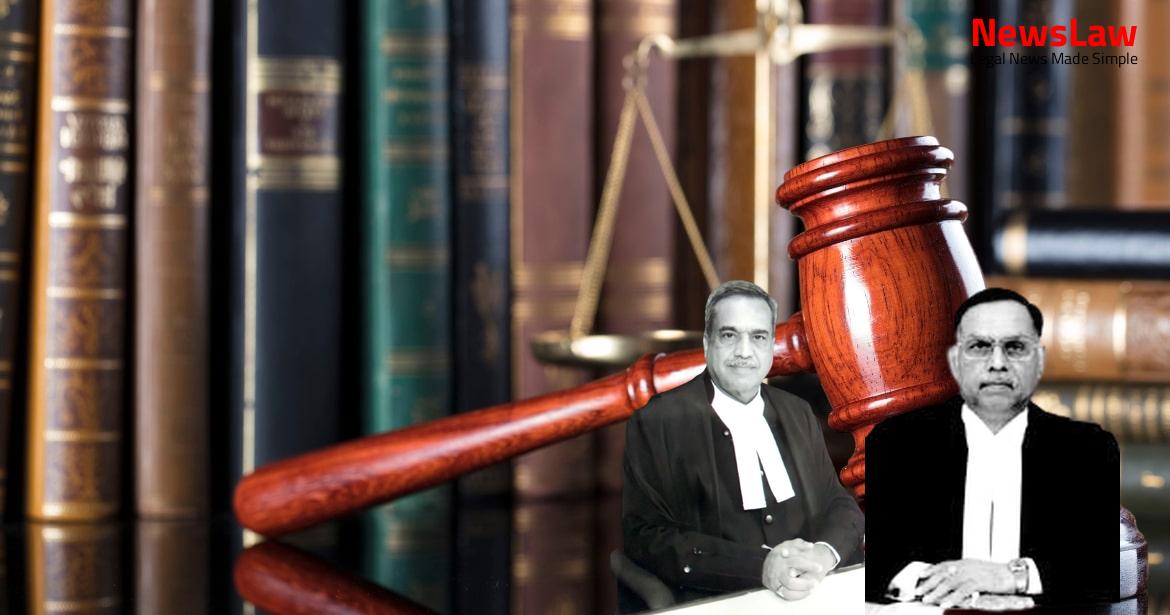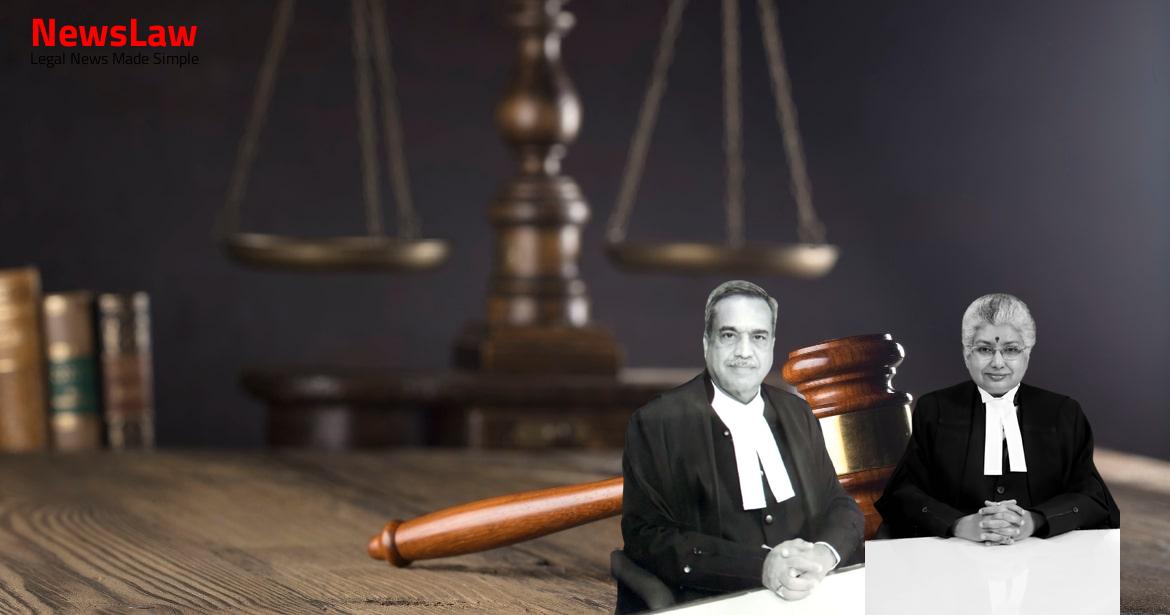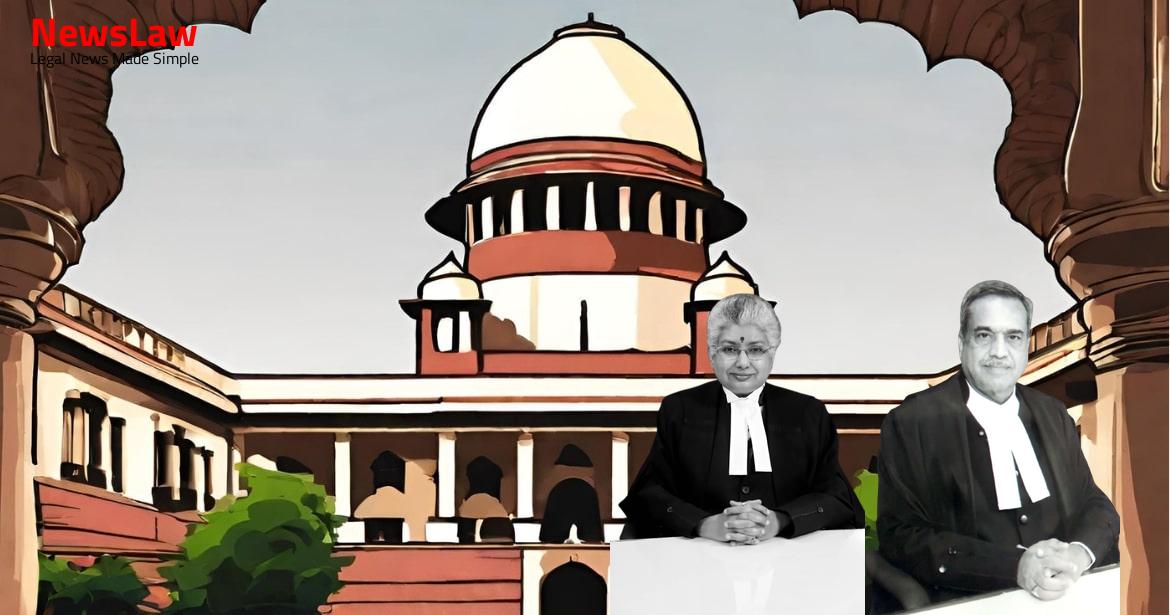In a recent judgement by the Supreme Court of India, the dismissal order under Section 20 of the Army Act was upheld in the case of The Appellant vs. Chief of the Army Staff. The petitioner, who was a former Sepoy in the Indian Army, challenged his termination from service through a writ petition. The High Court justified the dismissal, citing the independent nature of administrative power under Section 20 of the Army Act, read with Rule 17 of the Army Rules. Let’s delve into the details of this significant legal battle.
Facts
- The High Court dismissed the writ petition filed by the petitioner.
- The High Court justified its decision by stating that the administrative power under Section 20 of the Army Act, along with Rule 17 of the Army Rules, is independent.
- The High Court held that the order of dismissal passed under Section 20 of the Army Act, read with Rule 17 of the Army Rules, does not require interference.
- The appellant joined the Indian Army as a Sepoy in 1990 and was promoted to Naik in 1994-95.
- He faced a Court of Inquiry and was served a charge sheet in 1999 with three charges of misconduct.
- The Court of Inquiry questioned the appellant to test the truth of his statements.
- The Summary Court Martial awarded him a punishment of reduction in rank in 1999.
- The appellant pleaded guilty to the charges and was qualified for promotion to Hawaldar.
- Further, a show cause notice was issued to him in 2001 for discharge from the Army under Rule 13(3) item III(V).
- The appellant responded to the show cause notice and denied the charges made against him.
- The Court of Inquiry found that the appellant gave false and misleading replies.
- Despite pleading guilty earlier, the appellant denied the charges later on.
- The appellant challenged his dismissal from service under Section 20 of the Army Act through a writ petition.
Also Read: Interpretation of Lease Agreement and Compulsory Registration
Arguments
- The appellant’s absence assertion was found incorrect by a Court of Inquiry, recommending disciplinary action.
- The Summary Court Martial concluded with a punishment order, making it illegal for further proceedings by respondent no.3.
- The appellant argued against double jeopardy due to termination after Summary Court Martial sentencing.
- The relevant provisions of the Army Act and Rules were cited in support of appellant’s submissions.
- The Court of Inquiry conducted by the respondents was deemed illegal and void from the beginning.
- The administrative termination under Section 20 of the Army Act was defended as necessary to prevent escape from fraudulent acts’ consequences.
- Decision in State of Madhya Pradesh v. Hazari Lal was used to support the appeal.
- The termination order was challenged as illegal and amounting to double jeopardy.
- The High Court’s dismissal of the writ petition was contested based on the Army Act’s provisions and the appellant’s denial of fraudulent charges.
- The order for dismissal was passed under Section 20 of the Army Act read with Rule 17 of the Army Rules.
- Procedural requirements of Section 20 of the Army Act read with Rule 17 were duly complied with.
- No contention regarding non-compliance with any procedural requirement.
- The appellant’s services were rightly terminated/dismissed under Section 20 of the Army Act read with Rule 17 of the Army Rules.
- Power to discharge is under Section 22 of the Army Act.
- The issue raised was the availability of the power to initiate administrative action after Court Martial proceedings had attained finality.
- The appellant understood the difference between the two show cause notices issued on different dates.
- First show cause notice was for dismissal or removal from service under Rule 17, while the second show cause notice was for discharge under Section 22 read with Rule 13.
- Both show cause notices were issued in the exercise of distinct powers vested under the Army Act and the Army Rules.
Also Read: Enhancing Compensation and Modifying Sentences: A Legal Analysis
Analysis
- The order of dismissal of the appellant from service by respondent no.3 cannot be accepted as it lacks finality.
- The appellant was earlier tried by a Summary Court Martial for offenses under Section 63 of the Army Act.
- The dismissal order passed by respondent no.3 in the present case is deemed violative of the principle of double jeopardy as the appellant had already been subjected to a reduction in rank by the Summary Court Martial for the same charges.
- The power of dismissal under Section 20 of the Army Act is considered independent and mutually exclusive from other provisions like Section 71.
- Proper procedure was followed before dismissing the appellant from service, ensuring he was informed of the cause of action against him and allowed to state reasons in writing.
- The lapses/charges against the appellant were not initially deemed fraudulent, but later the Chief of the Army Staff considered them as such, justifying the dismissal order.
- The decision to dismiss under Section 20 of the Army Act was confirmed by the Chief of the Army Staff, indicating the order’s legality.
- The power to proceed under Section 19 or Section 20 remains available until a final verdict from a Court Martial is confirmed and effective.
- The dismissal order under Section 20 is not considered violative of the principle of double jeopardy as it was based on fraudulent charges deemed serious by the Chief of the Army Staff.
- The order passed under Rule 13(3) item III(v) is distinct from the dismissal order under Section 20 of the Army Act, confirming the independent nature of dismissal powers.
- The order of dismissal was deemed justified as proper procedures were followed, and the Chief of the Army Staff confirmed it after considering the fraudulent nature of the charges.
- The order of dismissal in the present case was based on Section 20 of the Army Act and Rule 17 of the Army Rules.
- The order of dismissal dated 29.04.2002 under Section 20 of the Army Act and Rule 17 of the Army Rules was found to be just, legal, and valid.
- The High Court and the Court of Appeal did not interfere with the aforementioned order of dismissal, considering it as rightly passed.
Also Read: SPML Infra Limited vs. Govt. of Arunachal Pradesh
Decision
- The High Court’s ultimate conclusion in the impugned judgment is agreed upon.
- The present appeal is liable to be dismissed and is accordingly dismissed.
- No order as to costs is passed in the circumstances of the case.
Case Title: SANJAY MARUTIRAO PATIL Vs. UNION OF INDIA MINISTRY OF DEFENCE (2020 INSC 85)
Case Number: C.A. No.-002448-002448 / 2010



